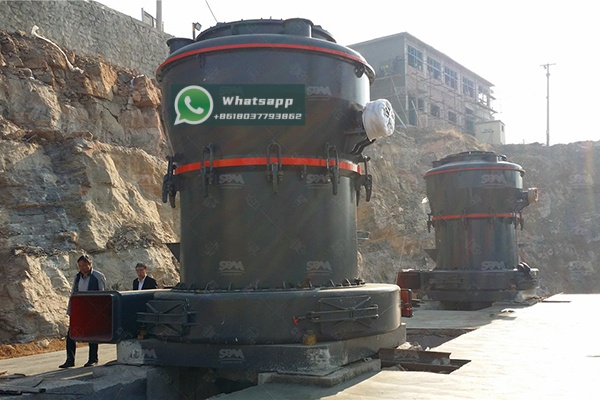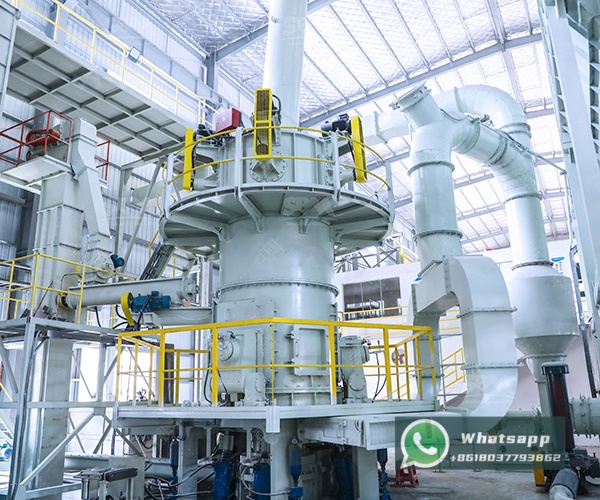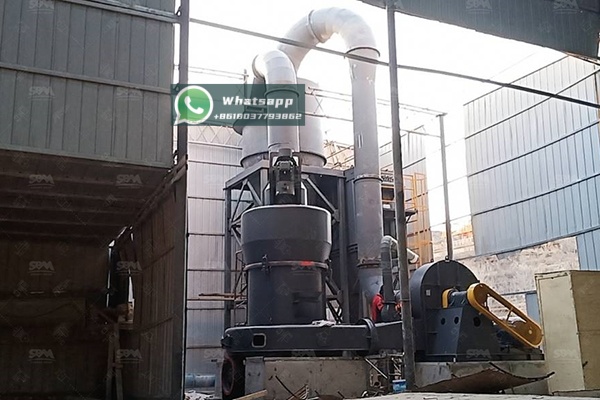Vermiculite is a hydrous phyllosilicate mineral that undergoes significant expansion when heated, a process known as exfoliation. This unique property makes it exceptionally valuable across multiple industries, particularly in horticulture and insulation. In its expanded form, vermiculite exhibits excellent water retention, aeration properties, and thermal insulation capabilities. However, to fully leverage these characteristics, vermiculite must be processed to specific particle sizes and distributions, making grinding technology a critical component in its value chain.
The horticulture sector relies on finely ground vermiculite to improve soil structure, enhance moisture retention, and provide essential minerals to plants. Meanwhile, the insulation industry requires precisely controlled particle sizes to maximize thermal performance in construction materials, fireproofing, and industrial applications. Achieving these optimal particle characteristics demands advanced grinding solutions capable of handling vermiculite’s unique physical properties while maintaining efficiency and product quality.

Vermiculite presents several specific challenges in the grinding process that require specialized equipment solutions. Its layered structure and tendency to retain moisture can lead to clogging in conventional grinding systems. The mineral’s relatively soft nature (Mohs hardness of 1.5-2) means it can be easily over-ground, resulting in excessive fine particles that may not meet specific application requirements. Additionally, the fibrous nature of some vermiculite deposits requires robust equipment that can handle varying material characteristics without compromising grinding efficiency.
Traditional grinding methods often struggle with maintaining consistent particle size distribution while achieving the required throughput rates. The ideal grinding solution must balance several factors: energy efficiency, particle size control, production capacity, and operational reliability. Furthermore, as environmental regulations become increasingly stringent, grinding equipment must incorporate dust collection systems and minimize energy consumption while maintaining optimal performance.
For vermiculite processing in both horticulture and insulation applications, vertical grinding mills offer significant advantages over traditional horizontal milling systems. The integrated design of vertical mills combines multiple processing stages—crushing, grinding, classification, and drying—into a single compact unit. This integrated approach is particularly beneficial for vermiculite, as it minimizes material handling and reduces the risk of contamination while improving overall process efficiency.
Shanghai Zenith Machinery’s LM Vertical Grinding Mill series represents the cutting edge in vermiculite processing technology. These mills feature advanced grinding principles that ensure uniform particle size distribution while minimizing energy consumption. The vertical orientation allows for natural material flow, reducing the power requirements typically associated with material transport in conventional grinding systems.
| Model | Plate Diameter (mm) | Capacity (t/h) | Output Fineness (μm) | Max Feed Size (mm) | Main Motor (kW) |
|---|---|---|---|---|---|
| LM130K | 1300 | 10-28 | 170-40 | <38 | 200 |
| LM190K | 1900 | 23-68 | 170-40 | <45 | 500 |
| LM280K | 2800 | 50-170 | 170-45 | <50 | 1250 |
The LM Vertical Grinding Mill’s ability to handle varying moisture content makes it particularly suitable for vermiculite, which often contains inherent moisture that can affect grinding efficiency. The integrated drying system ensures consistent product quality regardless of initial moisture conditions, a critical factor for both horticultural and insulation applications where moisture content directly impacts performance characteristics.
For applications requiring extremely fine vermiculite powders, such as specialty horticultural additives or high-performance insulation composites, ultrafine grinding technology becomes essential. Shanghai Zenith Machinery’s LUM Ultrafine Vertical Mill series provides the precise control needed for these demanding applications. The LUM mills incorporate advanced classification technology that enables production of vermiculite powders with tight particle size distributions, crucial for consistent product performance.

The LUM series features intelligent control systems that automatically adjust grinding parameters to maintain consistent product quality despite variations in feed material characteristics. This automation capability is particularly valuable in vermiculite processing, where natural variations in mineral deposits can significantly impact grinding behavior. The mills’ compact design and minimal footprint make them ideal for installation in existing production facilities without requiring extensive structural modifications.
| Model | Main Machine Power (kW) | Capacity (t/h) | Size Distribution D97 (μm) |
|---|---|---|---|
| LUM1525 | 220-250 | 1.6-11.5 | 5-30 |
| LUM1632 | 280-315 | 2.0-13.5 | 5-30 |
| LUM1836 | 355-400 | 2.3-15 | 5-30 |
In horticulture applications, vermiculite serves primarily as a soil amendment to improve aeration and moisture retention. The optimal particle size distribution for horticultural vermiculite typically ranges from 0.5mm to 4mm, with specific applications requiring precise distributions. For seed starting applications, finer particles (0.5-1mm) provide the ideal microenvironment for germination, while larger particles (2-4mm) are preferred for container gardening and soil mixes where drainage and aeration are primary concerns.
The MTW Trapezium Grinding Mill offers an excellent solution for horticultural vermiculite production, with its ability to produce consistent particle sizes across this required range. The mill’s advanced grinding curve and optimized grinding roller configuration ensure minimal production of undesirable fines while maintaining high throughput rates. The MTW series’ energy-efficient design also helps reduce operational costs, a significant consideration in the competitive horticultural products market.
Vermiculite’s excellent thermal properties make it valuable in various insulation applications, including loose-fill insulation, fireproofing compounds, and high-temperature insulation boards. The insulation industry requires vermiculite with specific particle size distributions that maximize the mineral’s natural exfoliation characteristics and thermal performance. Typically, insulation-grade vermiculite requires a broader particle size distribution than horticultural products, with particles ranging from ultrafine (for composite materials) to medium-coarse (for loose-fill applications).
For insulation applications, the XZM Ultrafine Grinding Mill provides the versatility needed to produce the wide range of particle sizes required. The mill’s advanced classification system allows operators to easily adjust product fineness without requiring mechanical changes to the grinding elements. This flexibility is particularly valuable for insulation manufacturers who may need to produce multiple vermiculite grades from the same raw material source.

Modern vermiculite grinding operations must balance production requirements with energy efficiency and environmental considerations. Shanghai Zenith Machinery’s grinding solutions incorporate several features specifically designed to address these concerns. The LM Vertical Grinding Mill’s integrated design reduces overall energy consumption by minimizing material transport requirements and optimizing the grinding process. Additionally, the mills feature advanced dust collection systems that ensure compliance with increasingly stringent environmental regulations regarding particulate emissions.
The LUM Ultrafine Vertical Mill takes energy efficiency further with its intelligent control system that optimizes grinding parameters in real-time based on feed material characteristics and desired product specifications. This adaptive control not only reduces energy consumption but also extends wear part life, further improving the operational economics of vermiculite processing.
Vermiculite’s abrasive nature can lead to significant wear on grinding components, making maintenance considerations a critical factor in equipment selection. Shanghai Zenith Machinery’s grinding mills incorporate several design features that address this challenge. The use of high-wear-resistant materials in critical components, combined with innovative designs that minimize direct contact between metal surfaces and abrasive particles, significantly extends service intervals.
The modular design of both the LM and LUM mill series facilitates maintenance operations, with many components accessible without requiring complete disassembly of the grinding chamber. This design philosophy reduces downtime during maintenance operations and simplifies replacement of wear parts, contributing to higher overall equipment availability and lower maintenance costs over the equipment’s operational lifetime.
The selection of appropriate grinding technology is fundamental to maximizing the value of vermiculite in both horticulture and insulation applications. The unique requirements of each sector demand grinding solutions that offer precise particle size control, operational efficiency, and reliability. Shanghai Zenith Machinery’s comprehensive range of grinding equipment, particularly the LM Vertical Grinding Mill and LUM Ultrafine Vertical Mill series, provides vermiculite processors with the technological foundation needed to meet these diverse requirements.
As market demands continue to evolve toward more specialized vermiculite products with tighter specifications, the importance of advanced grinding technology will only increase. Processors who invest in modern, efficient grinding solutions position themselves to capitalize on emerging opportunities in both traditional and new application areas. Through continued innovation in grinding technology and a deep understanding of vermiculite’s unique characteristics, Shanghai Zenith Machinery remains committed to providing the grinding solutions that drive success in the dynamic vermiculite processing industry.